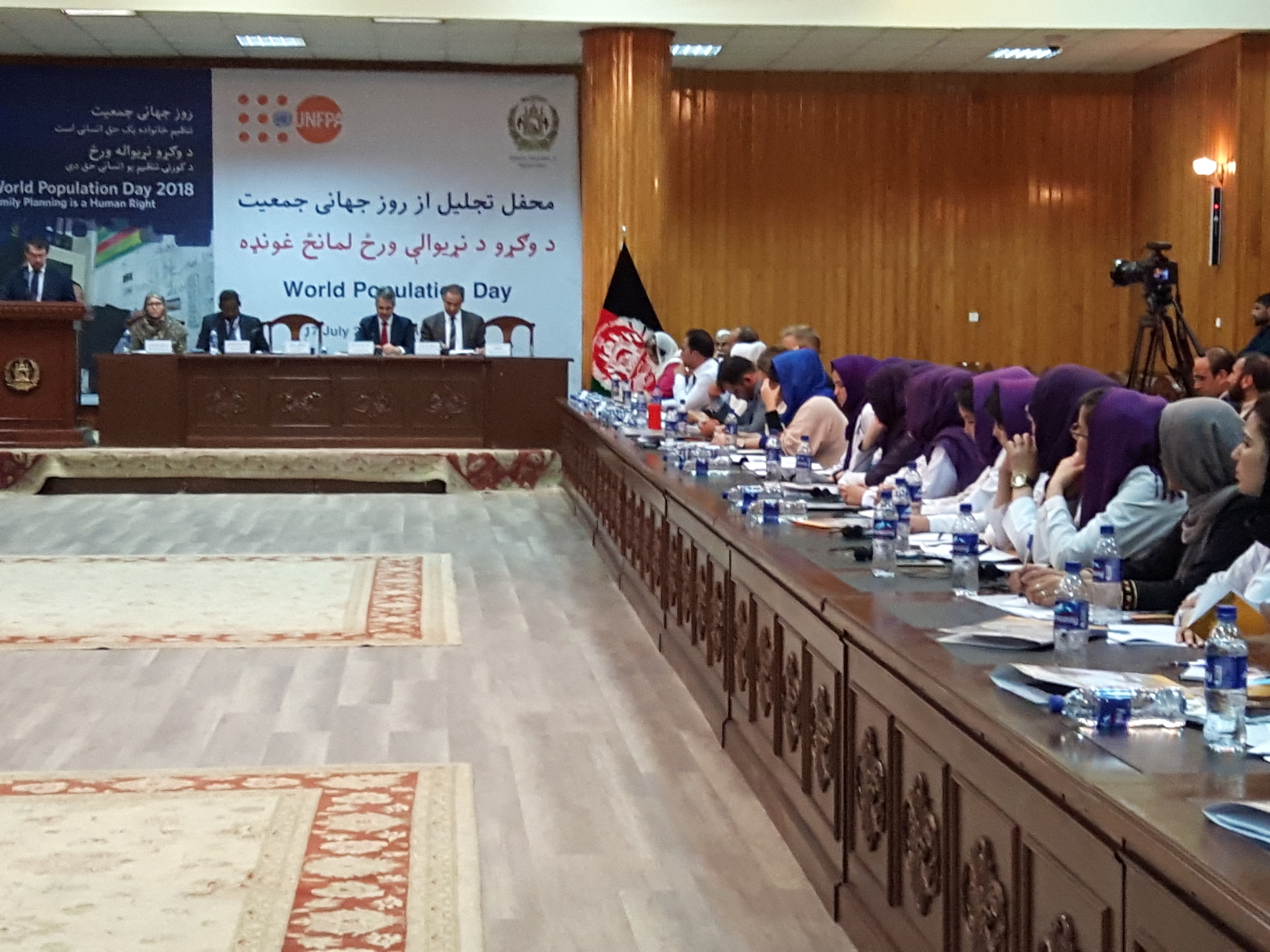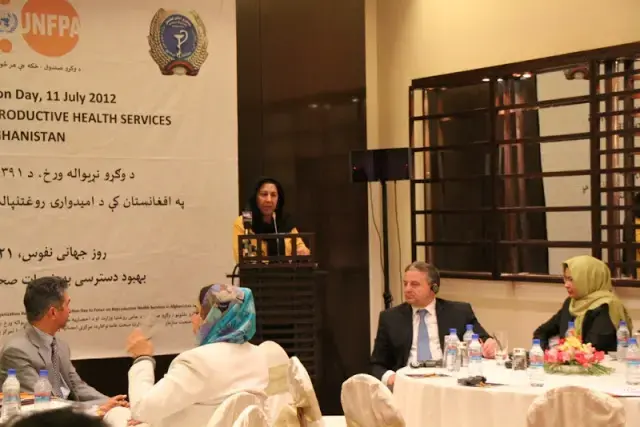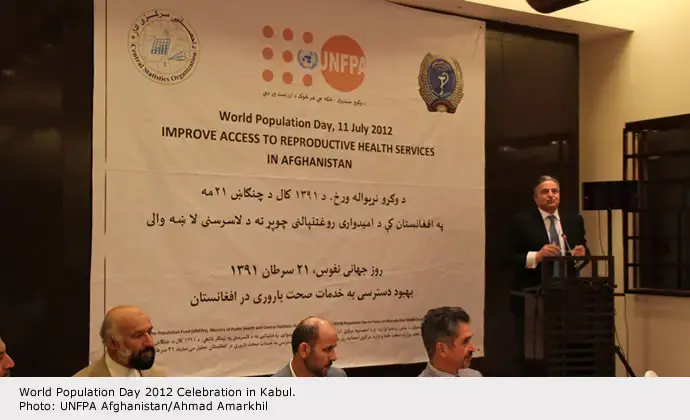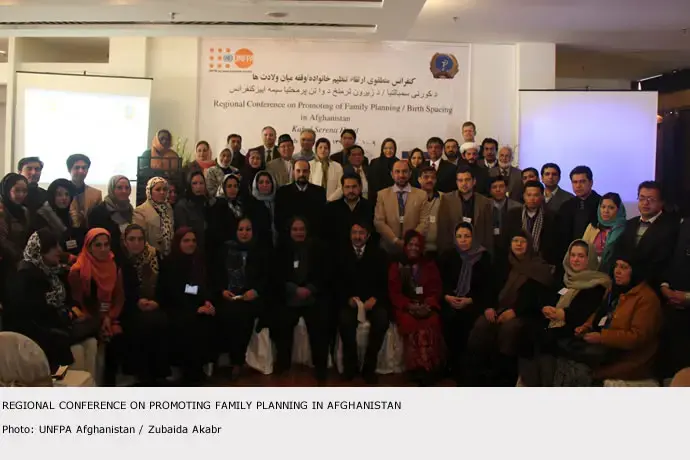- Only 20 per cent of currently married women use a modern method of contraceptive,
- Family planning can help avert maternal and neonatal mortality and morbidity,
- Family planning can improve the health of mothers and babies and the health of the whole family,
- Family planning can help nations to achieve a speedy economic growth,
17 July 2018, UNFPA, the United Nations Population Fund commemorated the World Population Day #WPD2018 in collaboration with the Afghan Ministry of Economy (AMoEc), Ministry of Public Health (MoPH), Ministry of Haj and Religious Affairs (MoHRA), Afghanistan National Statistics and Information Authority (ANSIA) and the Afghanistan Midwifery Association (AMA) at the Government Media and Information Center in Kabul.
The commemoration took place under the global theme of “Family Planning is a Human Right”. Representatives from Afghanistan’s highest religious entity the ministry of Haj and Religious Affairs attended the commemoration and stated that family planning is in line with the verses of the holy Quran and the teachings of Prophet Mohammad (PBUH).
Family planning is an integral part of reproductive health services. The failure to provide reproductive health services, including family planning, to the poorest women can weaken economies and sabotage progress towards the number one sustainable development goal, that is, to eliminate poverty.
UNFPA State of the World Population Report in 2017 warned that unless inequality is urgently tackled and the poorest women are empowered to make their own decisions about their lives, countries could face unrest and threats to peace and to their development goals.
“Investments in family planning in Afghanistan are critical not only to reduce maternal and neonatal morbidity and mortality but also to reduce fertility and the dependency ratio and as a result improve the social and economic well-being of families and communities”, said Dr. Bannet Ndyanabangi, UNFPA Representative.
According to the same report in Afghanistan, the poorest women have the fewest options for family planning, the least access to antenatal care, and are most likely to give birth without the assistance of a doctor or midwife. These issues increase the risks of maternal and neonatal mortality and morbidity.
According to the Afghanistan Demographic and Health Survey, only 23 per cent of currently married women use a method of contraceptive, while there is evidence that 25% of married women have an unmet need for family planning in Afghanistan.

The unmet need for family planning is evident globally, so much so that limited access to family planning translates into 89 million unintended pregnancies and 48 million abortions in developing countries annually. This does not only harm women’s health but also restricts their ability to join or stay in the paid labor force and move towards financial independence, (UNFPA SoWP, 2017)
On the other hand, early and child marriage, high fertility rates with little birth spacing contributes to the striking high maternal mortality in Afghanistan, that is currently the highest in the region and is estimated at about 661 per 100,000 live births (Afghanistan MoPH unofficial estimate).
For more information, please contact
Ahmadullah Amarkhil
UNFPA Office of Communication and Advocacy
Phone: +93 (0) 70 026 3232
e-mail:amarkhil@unfpa.org





